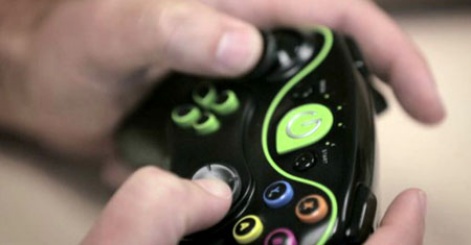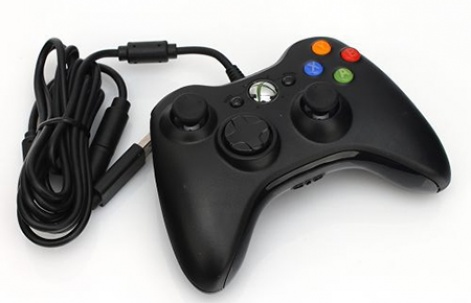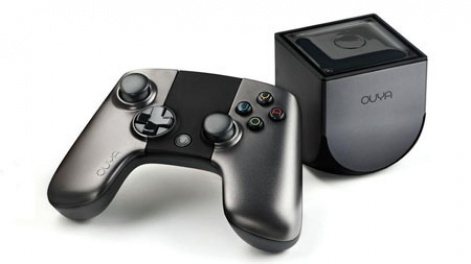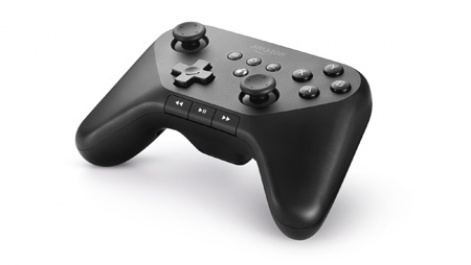The big reason to be excited about with Google TV is standardisation: It's Android finally built for TVs, and it gives manufacturers of smart TVs, set-top boxes, and microconosles a road forward for what they want to make, and it will help make TV gaming more of a force than it is now.
So why isn't Google treating controllers - the way that people will interface with games - with the same kind of standardisation the Google TV platform is doing?
By failing to make a standardised controller part of the Android TV identity, I believe Google is making the future of microconsoles blurrier than it needs to be. Without a controller intrinsically linked to Android TV, they risk customer confusion, and even worse, hurting the identity of Android as a gaming platform.
No standard
Right now, sure, there are dozens of random Android-compatible controllers out there, and software standards exist for them in Android and have since Ice Cream Sandwich.
However, thanks to Google not leading the way, consumers have little idea that they can use controllers with Android because there's no flagship "Android controller," only a myriad of confusing brands that don't always have buttons laid out in the same way, or even with the same number of buttons.

There's not the one thing that someone can go out and buy that they know will work, like they would an Xbox 360 controller. Sure, it's possible to use Xbox 360 and other Xinput controllers with Android devices – Google did so on stage with what appeared to be the Logitech F310 controller, a common PC controller - but I'm going to guess that only the geekiest of Android users know that by getting a USB-on-the-go cable, that it can be theoretically used on their Android phone, tablet, or other device.
Creating that default standard in a world of confusion can be both good business and invaluable to image.
Microsoft created a unified standard that made controllers conform to specific layouts.
Microsoft, with the Xbox-controller-based Xinput standard for PC gaming and controllers, did two things. One, it created a unified standard on both a software and hardware level that made controllers conform to specific features and layouts. Thus, developers could make supporting controller games even easier (at least on Windows), and so that someone could buy an Xbox 360 controller and know that it would work with their controller-supported games.
The other controller protocol, DirectInput, has no standardised button labels or layouts, leading to confusion for users and developers. So with Xinput, for the most part, users win, developers win, and Microsoft wins because they get to sell more Xbox controllers and wireless adapters to the public. It's capitalism in glorious action.
And lest you think that this is limited to PC and consoles, remember the iCade protocol? Without a firm guiding hand of the original manufacturer, despite standards being in place, third-parties still managed to build iCade controllers with weird layouts that made some games unplayable because the start button was used to jump.
Developers who didn't adhere to Ion Audio's standards were at fault too, but it's why I'm glad Apple has instituted guidelines for MFi controllers.
Building a brand
But there's another benefit for Microsoft as well: Branding.
Microsoft has effectively taken control of how controllers should look and be laid out for the near future, unless and until someone revolutionizes the way we play games with our hands. Even most Android controllers have the A-B-X-Y face buttons laid out in the same way the Xbox does, after years of confusion otherwise.

Microsoft now owns controller branding, and everything now gets compared to what they made. The Steam Controller is often criticized for its deviations from the Xbox controller standard, and has been praised for revisions toward it. To a certain degree, Microsoft has control of the way that games are interfaced with and how we play them, period.
What is the worst part about the Ouya controller besides those analogue triggers? The confusion that comes from how the Ouya A button is where the Xbox B button is, and how the Ouya O button on the Ouya controller serves as the equivalent to the Xbox A button while being shaped like the PlayStation O button, which is the PlayStation equivalent of the Xbox B button.

If your brain is pouring out of your ears, I assure you it's harder to make sense of while navigating Ouya menus, and it's because Microsoft has established the Xbox controller as the standard, and the confusion comes solely from deviation to what Microsoft has established.
No need to reinvent the wheel
Branding is why the aforementioned Steam Controller is so important: it's unique and even if it doesn't wind up revolutionising controllers, it at least serves as the face of SteamOS and Steam Machines.
The Steam Machines will be black boxes, just as the first Android TV microconsole is a black box, but the controller is invaluable as the visual shorthand for what Valve hopes will be an entire platform, despite not having one sole box.
Controllers need to serve as the way that people identify with what they're playing with.
While a controller does need to be functional, yes, it needs to also serve as the way that people identify with what they're playing with. Sony might have odd symbols for face buttons, but they help to symbolize the firm's branding, and people grow accustomed to them and identify those face button symbols with the PlayStation brand.
And that's why Google needs to make the one Android controller to rule them all, it's about creating a flagship for the Android TV brand. It's so that someone knows that Android TV is a legitimate game console, and have something to identify it by.

It's so that Average McConsumer can go to GameStop and have the underpaid retail clerk tell them to buy this controller, or buy this cheaper third-party controller. Some manufacturers will not include controllers: people who want to play more than just TV remote games will need to know what to buy, and Google can take some serious steps towards making that easier, and towards making Android TV as a game console something that resonates with people.
So, Google, I hope you have a controller in the works. There's a chance one may be in the pipeline - Google IO wasn't so much about showing off actual hardware as much as it was the possibilities of new hardware - but Google did nothing to help the controller image problem by using an off-the-shelf component.
Google should just copy the Xbox controller, but even if it goes off the reservation, hey, the GameCube and Ouya controllers are at least memorable for their dumb oddities. It's better to die as the court jester than as cannon fodder.
Oh, and Apple? You're ahead of the game with the MFi standards, but not having an Apple controller that people can go buy is killing the effectiveness of having controllers in the first place. Plus, I bet an official Apple controller would be really nice to use...
Formally of 148Apps, which was acquired by Pocket Gamer owner Steel Media in 2012, Carter Dotson is a freelancer writer working for Touch Arcade and Android Rundown.





















